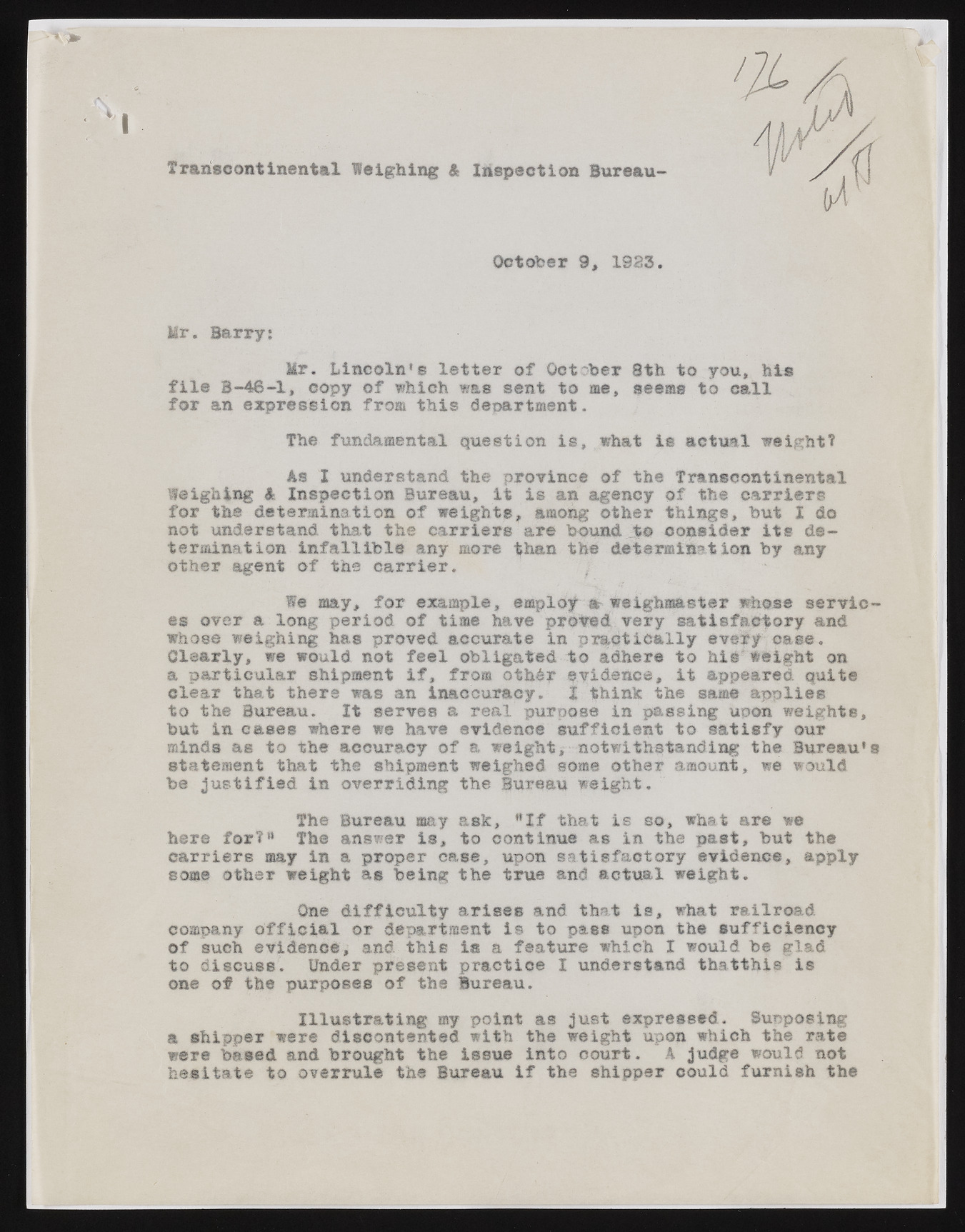Copyright & Fair-use Agreement
UNLV Special Collections provides copies of materials to facilitate private study, scholarship, or research. Material not in the public domain may be used according to fair use of copyrighted materials as defined by copyright law. Please cite us.
Please note that UNLV may not own the copyright to these materials and cannot provide permission to publish or distribute materials when UNLV is not the copyright holder. The user is solely responsible for determining the copyright status of materials and obtaining permission to use material from the copyright holder and for determining whether any permissions relating to any other rights are necessary for the intended use, and for obtaining all required permissions beyond that allowed by fair use.
Read more about our reproduction and use policy.
I agree.Information
Digital ID
Permalink
Details
Member of
More Info
Rights
Digital Provenance
Publisher
Transcription
Transcontinental Weighing St Inspection Bureau- October 9, 1923. Mr. Barry: Mr. Lincoln*s le tte r of October 8th to you, his f i l e B-46-1, copy of which was sent to me, seems to c a ll for an expression from this department. The fundamental question is , what is actual weight? As I understand the province of the Transcontinental Weighing & Inspection Bureau, it is an agency of the carriers for the determination of weights, among other things, but I do not understand that the carriers are bound to consider its determination in fa llib le any more than the determination by any other agent o f the c arrier. We may, for example, employ a weighm&ster whose services over a long period of time have proved very satisfactory and whose weighing has proved accurate in p ractica lly every case. Glearly, we would not fe e l obligated to adhere to hi® weight on a particular shipment i f , from oth&r evidence, it appeared, quite clear that there was an inaccuracy. I think the same applies to the Bureau. It serves a real purpose in passing upon weights, but in cases where we have evidence su fficien t to sa tisfy our minds as to the accuracy of a weight, notwithstanding the Bureau's statement that the shipment weighed some other amount, we would be ju s tifie d in overriding the Bureau weight. The Bureau may ask, " I f that is so, what are we here for?" The answer is , to continue as in the past, but the carriers may in a proper case, upon satisfactory evidence, apply some other weight as being the true and actual weight. One d iffic u lt y arises and that is , what railroad company o f f i c ia l or department is to pass upon the sufficiency of such evidence, and this is a feature which I would be glad to discuss. Under present practice I understand thatthis is one of the purposes of the Bureau. Illu stra tin g my point as just expressed. Supposing a shipper were discontented with the weight upon which the rate were based and brought the issue into court. A judge would not hesitate to overrule the Bureau i f the shipper could furnish the

